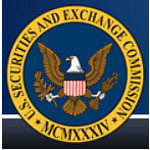 The U.S. Department reported that Gregory E. Grantham, 57, of Oceanside, California, was sentenced to five years in prison on Nov. 14 , followed by three years of supervised release, for a wire fraud conspiracy, wire fraud and obstruction of justice. U.S. District Judge J. Frederick Motz also ordered Grantham to forfeit/ pay restitution of $17.4 million.
The U.S. Department reported that Gregory E. Grantham, 57, of Oceanside, California, was sentenced to five years in prison on Nov. 14 , followed by three years of supervised release, for a wire fraud conspiracy, wire fraud and obstruction of justice. U.S. District Judge J. Frederick Motz also ordered Grantham to forfeit/ pay restitution of $17.4 million.
DOJ reports:
Grantham is a licensed attorney and between September 2009 and September 2011, was employed as General Counsel for IAGU Underwriters, LLC, as well as maintaining a private law practice. Graham’s co-defendant, Mervyn Phelan operated IAGU, which was in the business of underwriting loan applications submitted by real estate developers and then locating project financing from banks and other financial entities.
According to his plea agreement and court documents, between mid-2010 and August 2011, Grantham and Phelan became involved in a fraudulent scheme carried out by Patrick Belzner and Brian McCloskey, who both resided in Baltimore County. McCloskey owned a real estate development business known as the McCloskey Group, LLC. Belzner, a home builder, began working with McCloskey in late 2008 or early 2009. Phelan and IAGU began working with the McCloskey Group trying to locate sources of financing for its projects in about 2009.
Beginning in 2009 and continuing through June 2011, Belzner and McCloskey persuaded a series of private lenders to fund loans to establish that the McCloskey Group had reserves of cash that would supposedly help it obtain loans it was seeking in connection with real estate development projects through IAGU. Belzner and McCloskey falsely represented that the funds would be maintained in an escrow account under the control of Kevin Sniffen, a licensed attorney and escrow agent in Baltimore County; that the funds would not be used for any other purpose; and that the money would be returned to the lender, either upon the funding of the loan or after a specified period of time. In return for this temporary use of the lender’s funds, Belzner and McCloskey promised to pay substantial fees or interest. In fact, once the lenders transferred their funds into the escrow accounts, Belzner directed McCloskey to remove those funds from the escrow accounts without the knowledge or permission of the lenders. Belzner and McCloskey then used the majority of the stolen funds to pay for their personal and business expenses. The total losses resulting from the scheme were approximately $20 million.
Read the rest of the story.
 Muhammad Naji of Tampa, FL, has pleaded guilty to conspiracy to commit laundering of money that was obtained by fraudulent means, announced U.S. Attorney A. Lee Bentley III.
Muhammad Naji of Tampa, FL, has pleaded guilty to conspiracy to commit laundering of money that was obtained by fraudulent means, announced U.S. Attorney A. Lee Bentley III. Imperative Information Group has posted a free on-demand webinar considering the federal, state, and local issues surrounding employers’ evaluation of candidates’ criminal history information.
Imperative Information Group has posted a free on-demand webinar considering the federal, state, and local issues surrounding employers’ evaluation of candidates’ criminal history information. A secret recording captures a rare inside look at two embattled executives grappling with the weight of a federal investigation into alleged bribery, according to a report at Nasdaq.com.
A secret recording captures a rare inside look at two embattled executives grappling with the weight of a federal investigation into alleged bribery, according to a report at Nasdaq.com. Aruvio presents a free on-demand webinar about enterprises and other organizations preparing for increasingly challenging anti-bribery and corruption laws and intensified enforcement (e.g., FCPA, UK Bribery Act) in 2015.
Aruvio presents a free on-demand webinar about enterprises and other organizations preparing for increasingly challenging anti-bribery and corruption laws and intensified enforcement (e.g., FCPA, UK Bribery Act) in 2015. JPMorgan Chase & Co. agreed to pay $99.5 million to settle its portion of an antitrust lawsuit in which investors accuse 12 major banks of rigging prices in the $5.3 trillion-a-day foreign exchange market, reports Reuters.
JPMorgan Chase & Co. agreed to pay $99.5 million to settle its portion of an antitrust lawsuit in which investors accuse 12 major banks of rigging prices in the $5.3 trillion-a-day foreign exchange market, reports Reuters. The former general counsel of a bankrupted South Florida law firm that was at the center of a massive fraud was sentenced Jan. 30 to 18 months in federal prison for his role in helping managing partner Scott Rothstein swindle investors by selling them “income” from faked settlements, reports the ABA Journal.
The former general counsel of a bankrupted South Florida law firm that was at the center of a massive fraud was sentenced Jan. 30 to 18 months in federal prison for his role in helping managing partner Scott Rothstein swindle investors by selling them “income” from faked settlements, reports the ABA Journal. Can the Federal Bureau of Investigation wire up your longtime company counsel and then use recordings of the conversations against you in court? The answer – as reported in The Wall Street Journal‘s Risk & Compliance Journal – is often yes, according to legal experts and a ruling by a New Jersey federal judge.
Can the Federal Bureau of Investigation wire up your longtime company counsel and then use recordings of the conversations against you in court? The answer – as reported in The Wall Street Journal‘s Risk & Compliance Journal – is often yes, according to legal experts and a ruling by a New Jersey federal judge. The French industrial giant Alstom has agreed to plead guilty and pay the largest fine ever levied by the United States for foreign bribery.
The French industrial giant Alstom has agreed to plead guilty and pay the largest fine ever levied by the United States for foreign bribery. Alstom SA pleaded guilty and agreed to pay a record $772 million to end a U.S. Justice Department investigation into bribes paid to win power-plant contracts in Indonesia and other countries, Bloomberg News reports.
Alstom SA pleaded guilty and agreed to pay a record $772 million to end a U.S. Justice Department investigation into bribes paid to win power-plant contracts in Indonesia and other countries, Bloomberg News reports. Many large retailers remain woefully unprepared to defend against a cyber attack, according to security experts quoted in a report in The San Jose Mercury News.
Many large retailers remain woefully unprepared to defend against a cyber attack, according to security experts quoted in a report in The San Jose Mercury News. An alert issued by the FBI on Monday is warning about a type of computer malware that has the ability to destroy any system it infects, reports CSO on its website. The memo, #A-000044-MW, was obtained by Salted Hash from a source that wishes to remain anonymous.
An alert issued by the FBI on Monday is warning about a type of computer malware that has the ability to destroy any system it infects, reports CSO on its website. The memo, #A-000044-MW, was obtained by Salted Hash from a source that wishes to remain anonymous. The Securities and Exchange Commission has charged two top ex-officers of a company that operates assisted living centers with listing fake occupants at several senior residences to meet the terms of a lease and misrepresenting in regulatory filings that the company was in compliance with the lease.
The Securities and Exchange Commission has charged two top ex-officers of a company that operates assisted living centers with listing fake occupants at several senior residences to meet the terms of a lease and misrepresenting in regulatory filings that the company was in compliance with the lease. Health care and biotech companies are increasingly seeing attacks by cyber criminals, reports the San Diego Union-Tribune.
Health care and biotech companies are increasingly seeing attacks by cyber criminals, reports the San Diego Union-Tribune. Bank of Tokyo Mitsubishi UFJ, also known as BTMU, agreed in a settlement Nov. 18 with financial regulators to move its money laundering and sanctions compliance unit from Tokyo to New York. The agreement was part of a deal with New York’s financial regulator.
Bank of Tokyo Mitsubishi UFJ, also known as BTMU, agreed in a settlement Nov. 18 with financial regulators to move its money laundering and sanctions compliance unit from Tokyo to New York. The agreement was part of a deal with New York’s financial regulator. Any business transaction involving simple negotiations could be subject to prosecution, former Jefferies & Co. managing director Jesse Litvak warned an appeals court in an attempt to have his securities fraud conviction thrown out, Bloomberg Businessweek reported.
Any business transaction involving simple negotiations could be subject to prosecution, former Jefferies & Co. managing director Jesse Litvak warned an appeals court in an attempt to have his securities fraud conviction thrown out, Bloomberg Businessweek reported. The U.S. Department reported that Gregory E. Grantham, 57, of Oceanside, California, was sentenced to five years in prison on Nov. 14 , followed by three years of supervised release, for a wire fraud conspiracy, wire fraud and obstruction of justice. U.S. District Judge J. Frederick Motz also ordered Grantham to forfeit/ pay restitution of $17.4 million.
The U.S. Department reported that Gregory E. Grantham, 57, of Oceanside, California, was sentenced to five years in prison on Nov. 14 , followed by three years of supervised release, for a wire fraud conspiracy, wire fraud and obstruction of justice. U.S. District Judge J. Frederick Motz also ordered Grantham to forfeit/ pay restitution of $17.4 million.